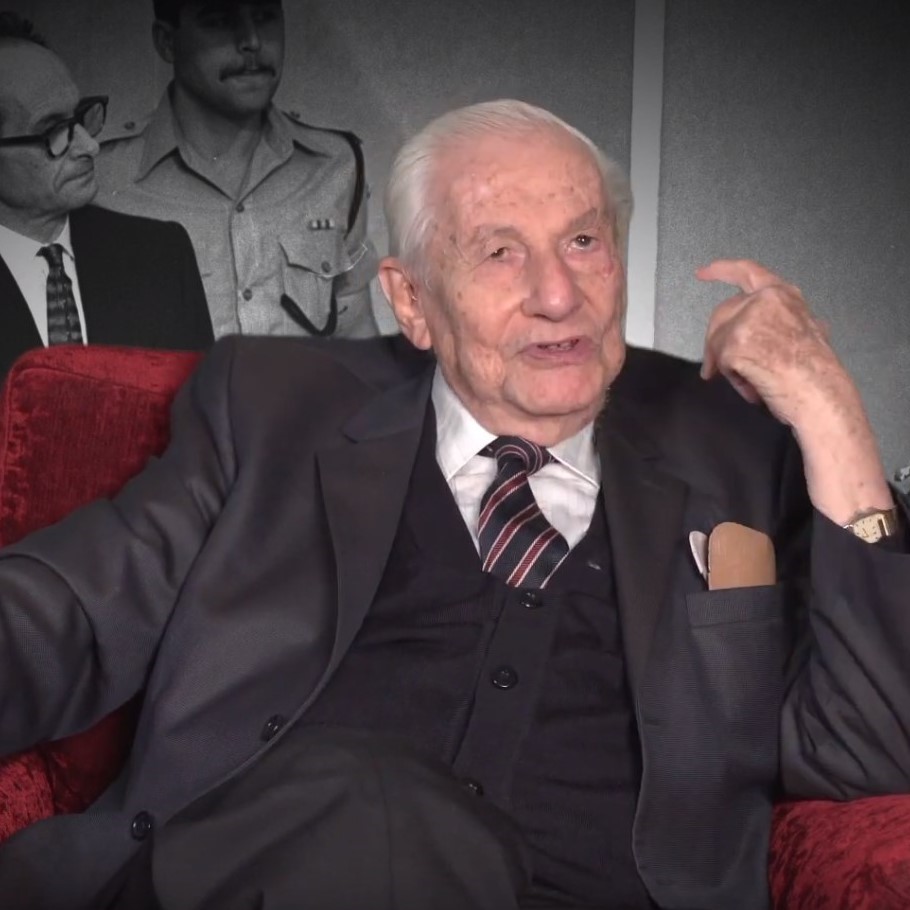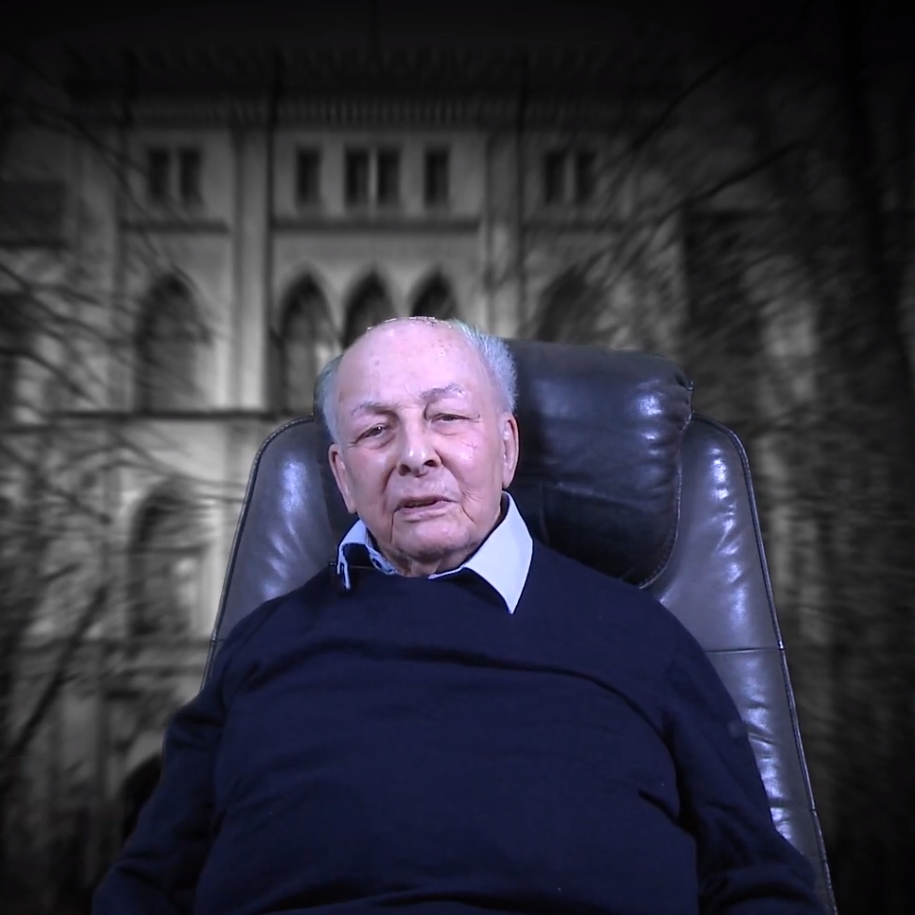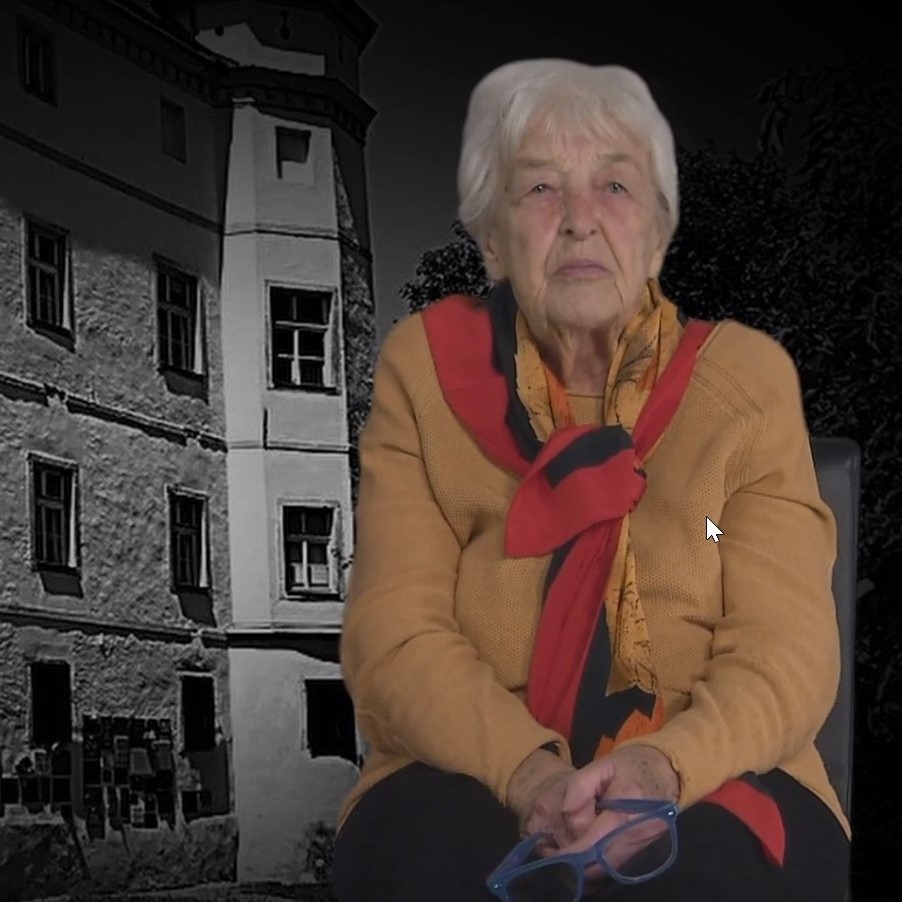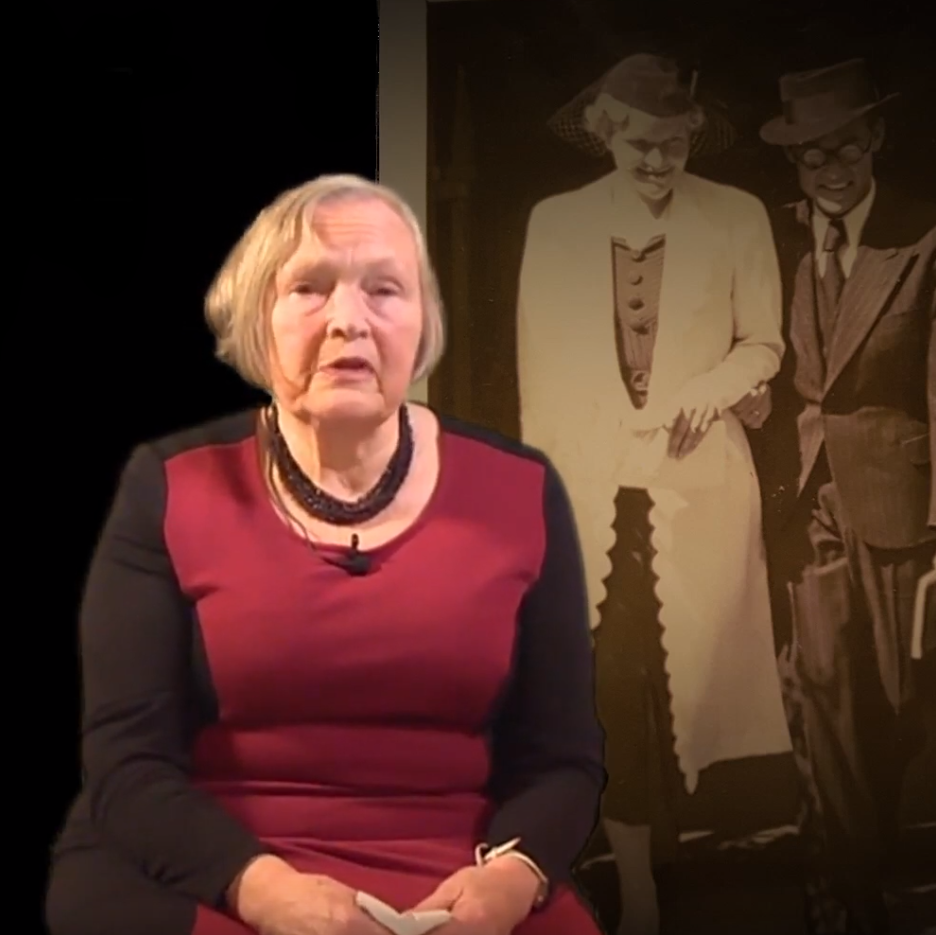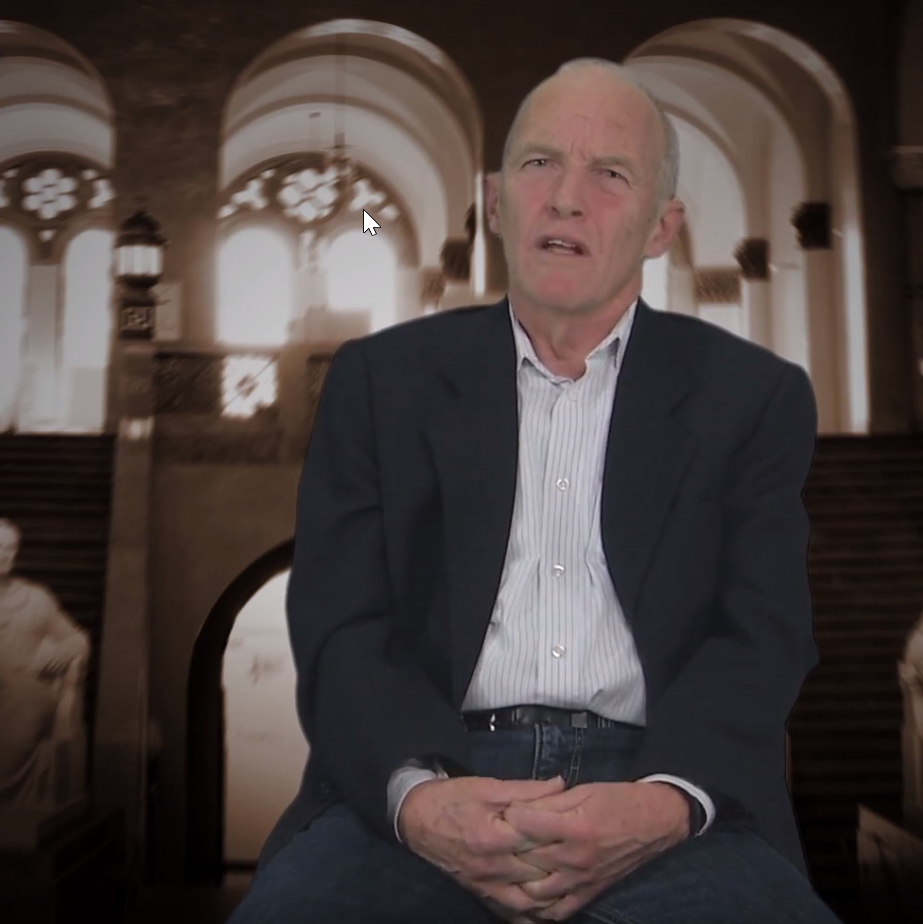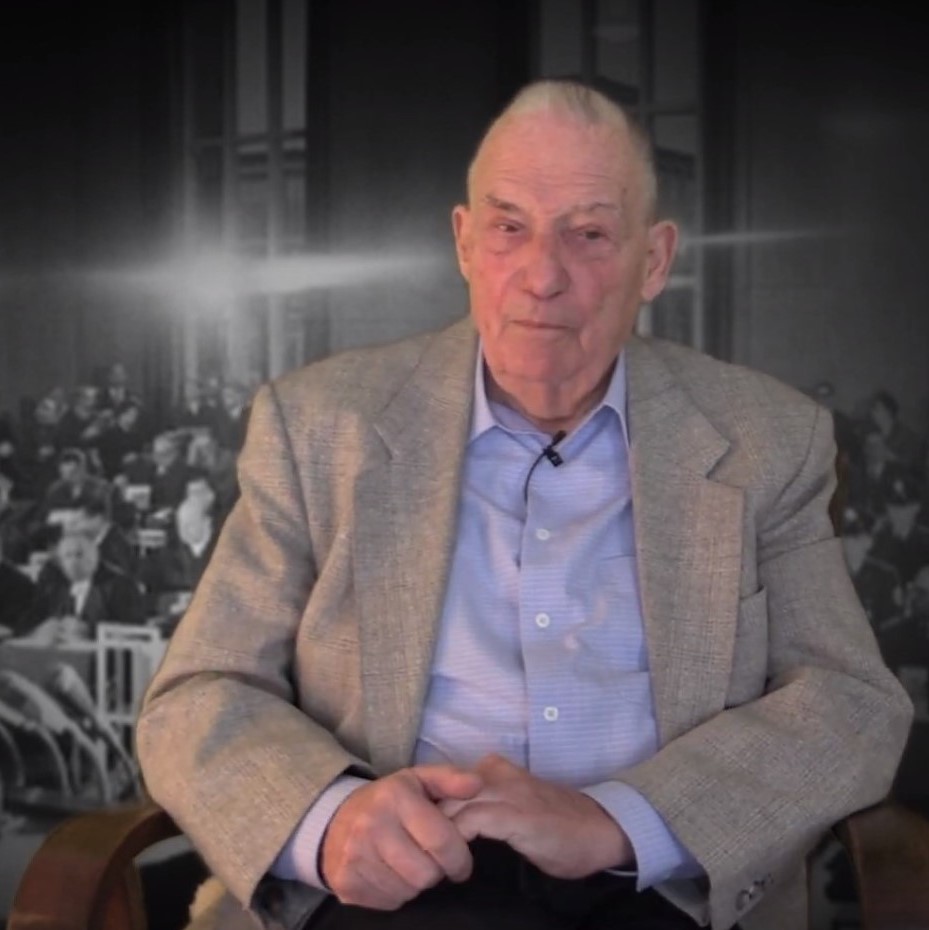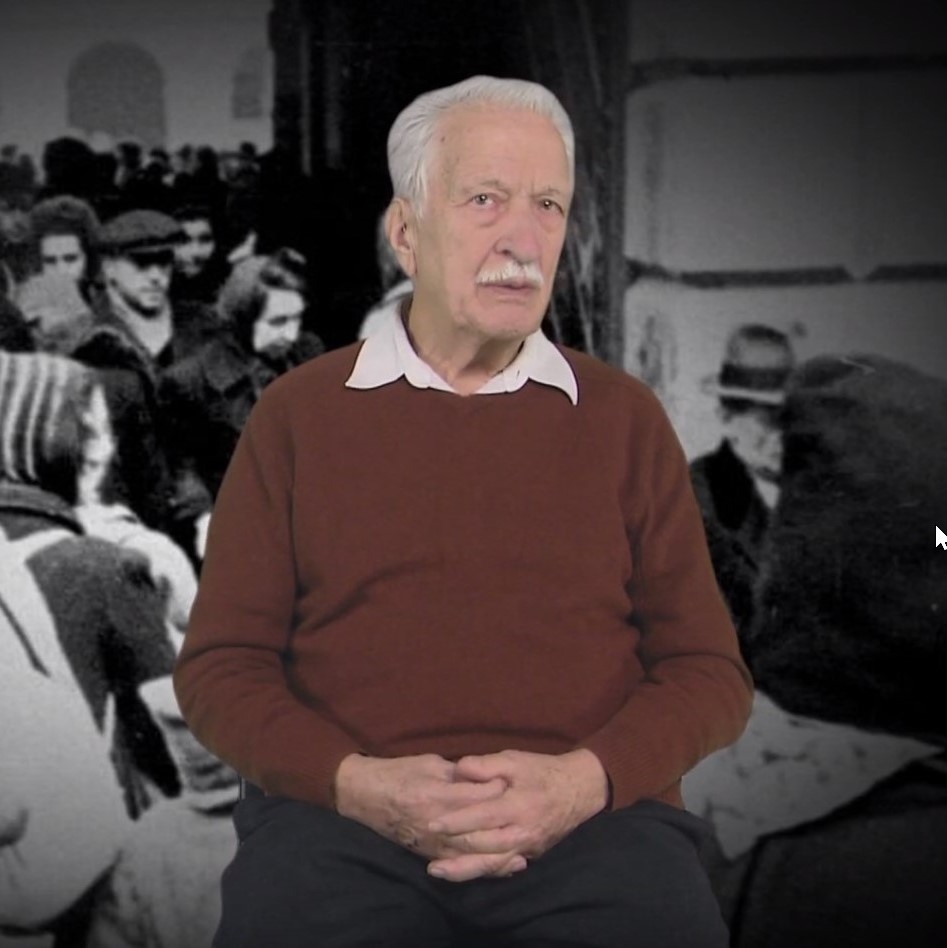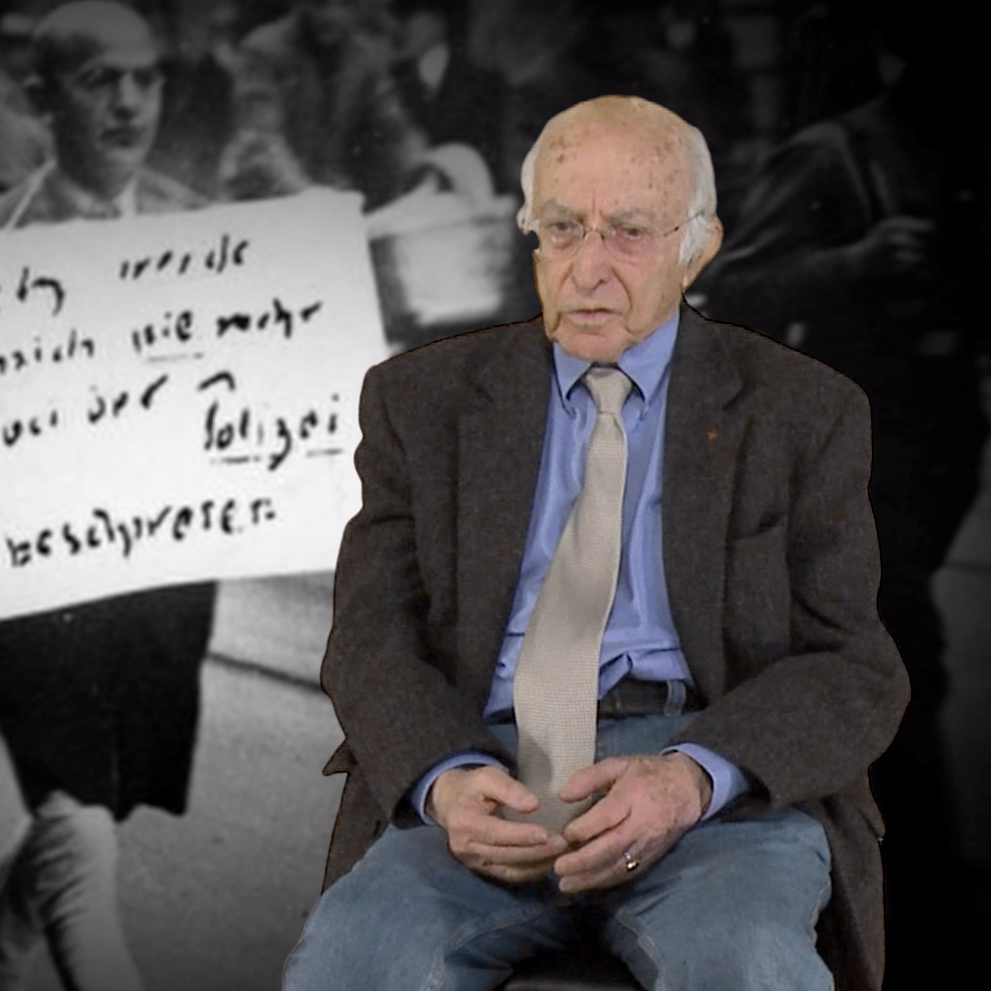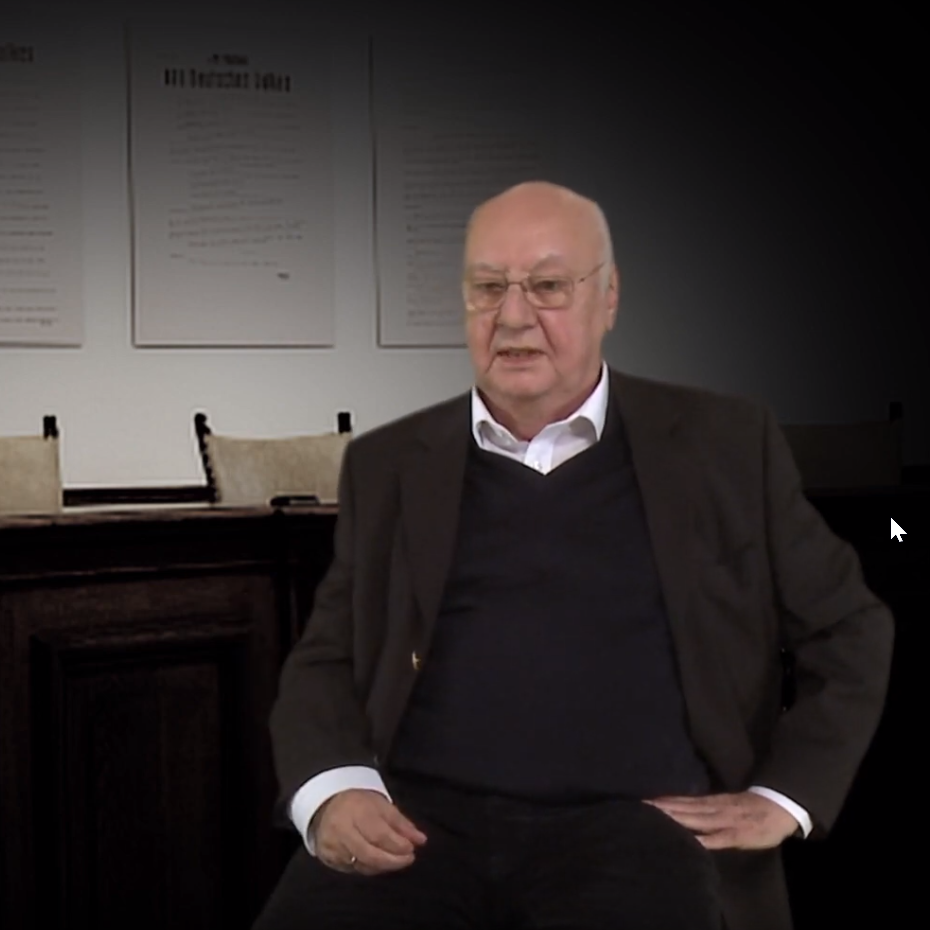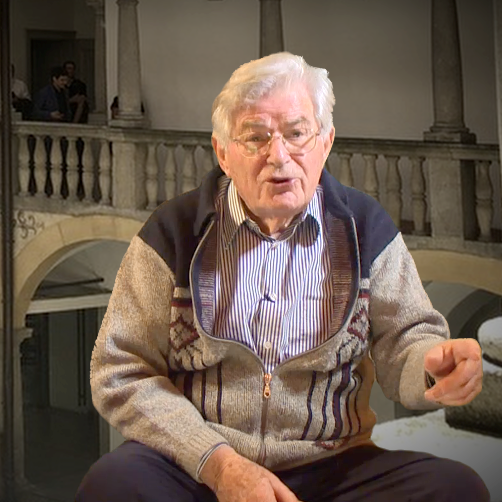Kein Kläger (No plaintiff)
Nazi Jurists and their post-war careers
An interactive game in urban space with contemporary witnesses and actors
by Christiane Mudra
World premiere on July 11, 2019
RODEO Festival 2020
After "We Were Never Gone - the Blueprint" (2015, Executive) and "Off the Record - the Wall of Silence" (2016, Legislative), "Kein Kläger" sheds light on the significance of the judiciary.
In Munich's urban space, the audience encounters actors and augmented reality clips with contemporary witnesses interviewed especially for the production.
“Kein Kläger" highlights examples of Munich's judicial history and encourages the audience to engage with legal reappraisal and the achievements and weaknesses of criminal law.
Judge Neithardt's bending of the law allowed Hitler, a putschist, to return to his circle of supporters after only a few months in prison. In 1924, the successor party to the temporarily banned NSDAP became the strongest force in Munich. In 1943, the President of the People's Court Roland Freisler sentenced numerous members of the White Rose to death in two show trials. His widow, who lived in Munich, received an increased pension until the 1990s. Jurists from special courts and the People's Court worked at the Munich Higher Regional Court after 1945. The trial against Philipp Auerbach (1952) bore anti-Semitic features and resulted in the suicide of the defendant. Theodor Maunz, who as a professor had sought to give the Nazi regime legal legitimacy and had argued away the separation of powers in favor of the “Führer's power,” became Bavarian Minister of Culture and professor at the LMU. The standard commentary on the Basic Law (Grundgesetzt) still bears his name today.
In 1989, the Federal Minister of Justice Engelhard wrote that he considered the flight from coming to terms with his own "noiseless slide into National Socialism" to be "the failure of the Federal German judiciary." In a 1995 landmark ruling, the Federal Supreme Court harshly criticized the "downright bending of the law" of the postwar judiciary.
July 11, 2019 marks the first anniversary of the verdict in the NSU trial at the Munich Higher Regional Court. Those involved in the trial and observers still wonder why the court remained far below the federal prosecution's demand for punishment in the case of the two active right-wing extremists among the defendants.
The signal was definitely devastating. Even in 2018, the final chord in one of the most important post-war trials was the jeering applause of the neo-Nazis, mingled with the sobs of the bereaved.
Against the backdrop of the above examples, "Kein Kläger" examines exemplary settings, judgments and legal careers, but also cases of successful reappraisal.
At the heart of "No Plaintiff" is the question: what indispensable role(s) does the judiciary of the past, present and future play in curbing right-wing extremist and anti-Semitic violence?
The myth of denazification can be disproved by the personnel continuities in almost all agencies and ministries of the young Federal Republic.
An overwhelming number of prosecutors and judges with Nazi pasts not only shaped the understanding of the law and teaching in the postwar decades, but in many cases were also responsible for punishing Nazi crimes.
Closed investigations, acquittals and lenient sentences against perpetrators were the order of the day.
This corresponded perfectly to the political-social climate in which Globke, the commentator on the Nuremberg Laws, became Chancellor Adenauer's right-hand man, Josef Mengele was able to travel to Germany unmolested, and the extradition of Adolf Eichmann seemed unthinkable.
The silence was collective and consensual.
Not a single incriminated judge or prosecutor was finally convicted by a German court.
Instead, prosecutors and judges of special courts were represented in the Federal Ministry of Justice, the Federal Supreme Court and the Federal Constitutional Court, among others. Even judges of the "Volksgerichtshof" later held high positions in courts throughout Germany.
Walter Roemer, the head of the execution department at the Munich Regional Court, who also confirmed the execution of the members of the White Rose, was later employed in the Federal Ministry of Justice.
Inheritance Law commentator Massfeller, who had attended a follow-up meeting of the Wannsee Conference led by Adolf Eichmann, also later worked in the Federal Ministry of Justice.
The commentary on the Basic Law still bears the name Maunz-Düring today. Theodor Maunz, a student of the constitutional lawyer Carl Schmitt, founded the abolition of the separation of powers in favor of the "Führer's power" in 1937.
In 1952 he became a full professor at the LMU, and in 1957 Bavarian Minister of Culture. Until his death in 1993, Maunz wrote anonymous articles for the Deutsche National-Zeitung of the right-wing extremist DVU chairman Gerhard Frey.
The director of the Eglfing-Haar sanatorium and nursing home, Hermann Pfannmüller, who had recommended several thousand killings as part of the euthanasia campaign, was sentenced to 5 years in prison only for aiding and abetting manslaughter and remained one of the few convicted euthanasia perpetrators after 1948.
Until the 1980s, German courts, up to and including the Federal Supreme Court, granted euthanasia functionaries and physicians, all of them doctors and lawyers, excusable error in prohibition in mitigation of punishment because of ideological blindness.
"The defendant," the Frankfurt District Court's 1960 assessment stated, "committed his crime at a time when the entire German people were misled."
The statutes of limitations for murder and aiding and abetting were hotly debated in the postwar decades. It was not until July 3, 1979, that the German Bundestag decided to explicitly lift the statute of limitations for murder.
Eduard Dreher, who had been responsible for several death sentences for trivialities at the Special Court in Innsbruck during the Nazi era, brought about an inconspicuous amendment to the law as late as 1968, which retroactively barred the majority of Nazi crimes other than murder in one fell swoop. The major trial against employees of the "Reichssicherheitshauptamt", the organizational center of the extermination of the Jews, thus fell through.
The debate about the end of the war in politics and society began in the first post-war years and was supported by a majority of the population until the 1980s.
For decades, the National Socialist narrative about the resistance of the so-called "Rote Kapelle" was adopted uncritically by numerous journalists and historians, and the resistance fighters were once again vilified. The commemoration of the victims of the Nazi dictatorship was and is contested. The construction of the Berlin Holocaust Memorial was only decided in 1999 and inaugurated in 2005. In Munich, the city council in 1985 found a permanently burning flame on the Square of the Victims of National Socialism to be too expensive in all seriousness.
In 2018, AfD leader Alexander Gauland announced that Hitler and the National Socialists were "just a bird shit" in 1,000 years of German history. In 2019, the AfD is presenting a bill that is clearly based on the Habitual Criminals Act of 1933, and an AfD-affiliated public prosecutor in Thuringia is unlawfully investigating the artists' collective "Center for Political Beauty" for forming a criminal organization.
Also against the backdrop of recent developments, "No Plaintiff" sheds light on the fundamental values of the rule of law and the indispensable role of the judiciary in curbing right-wing extremist and anti-Semitic violence.
Photos
Contemporary Witnesses
In 2018 and 2019, Christiane Mudra conducted interviews with witnesses Gabriel Bach (prosecutor in the Eichmann trial), Saskia von Brockdorff (daughter of resistance fighter Erika von Brockdorff), Ernst Grube (Holocaust survivor), Prof. Wolfgang Huber (son of resistance fighter Prof. Kurt Huber), Walter Joelsen (Holocaust survivor), Markus Schmorell (nephew of resistance fighter Alexander Schmorell), Uri Siegel (lawyer for compensation issues), Walter Sylten (son of murdered pastor Werner Sylten), Lisa Wanninger (niece of euthanasia victim Thea Dorn) and Gerhard Wiese (prosecutor in the Auschwitz trial).
Press
“Bei der interaktiven Aufführung Kein Kläger ziehen Schauspieler und Publikum drei Stunden lang durch München auf der Spur von Nazi-Juristen und ihren schrecklichen Taten. […] Unterwegs gibt es per App Interviews mit Zeitzeugen und Hintergrundinfos. […] Die Schauspieler schlüpfen immer wieder in andere Rollen. Mal Täter, mal Ankläger, mal Opfer, mal Mitläufer. Ihre Texte fast ausschließlich historische Originalzitate. […] Mit ihrem Stück möchte sie das Publikum anregen, über die Rolle der Gerichtsbarkeit nachzudenken, so die Regisseurin, nicht nur in der Vergangenheit, sondern auch in der Gegenwart.”
ZDF HEUTE+ ÜBER KEIN KLÄGER, 12. JULI 2019

„Die Münchner Theaterszene lässt aufhorchen. Ein Theaterprojekt mit einem heiklen Thema steht dort auf dem Programm, das die junge Bundesrepublik lange verdrängt hatte. Die Präsenz vieler Alt-Nazis in führenden Positionen. Besonders ungewöhnlich dabei: Die Art der Inszenierung. Besonders spannend die Parallelen, die dort zur Gegenwart gezogen werden. Schnörkellos erzählt das Theaterstück Kein Kläger von Nazijuristen und ihren Karrieren im Nachkriegsdeutschland. Das Stück ist eine Montage aus interaktiven Elementen, multimedialen Zeitzeugeninterviews und Schauspielszenen.“
BAYERISCHER RUNDFUNK - RUNDSCHAU, 10. JULI 2019
Politisches Theater at its best erlebt Nachtkritikerin Anna Landefeld bei Christiane Mudra, die sich in ihrem Stück “Kein Kläger. NS-Juristen und ihre Nachkriegskarrieren” bereits zum dritten Mal den rechtsextremen Kontinuitäten in der deutschen Justiz seit dem Nationalsozialismus widmet und die Zuschauer dafür quer durch München an Originalschauplätze wie das OEZ schickt […]
Politisches Theater at its best erlebt Nachtkritikerin Anna Landefeld bei Christiane Mudra, die sich in ihrem Stück “Kein Kläger. NS-Juristen und ihre Nachkriegskarrieren” bereits zum dritten Mal den rechtsextremen Kontinuitäten in der deutschen Justiz seit dem Nationalsozialismus widmet und die Zuschauer dafür quer durch München an Originalschauplätze wie das OEZ schickt […]
PERLENTAUCHER.DE AM 13. Juli 2019

“Es ist eine Mammutaufgabe, die sich Mudra gestellt hat, die, spätestens nach diesem Abend, zu Recht als politischste unter den Münchner Theatermacher*innen bezeichnet werden kann. Umso beeindruckender ist es, wie gut es ihr gelingt, gleichermaßen auf emotionaler wie intellektueller Ebene zu berühren und mitzunehmen. […] Es ist ein besonderes Projekt, mit dem Christiane Mudra nach “Wir waren nie weg. Die Blaupause” (Juli 2015) und “Off the record-die Mauer des Schweigens” (November 2016) ihre Trilogie zum Umgang mit dem nationalsozialistischen Erbe in der Bundesrepublik und besonders der Stadt München abschließt. Es ist so mutig wie innovativ.”
ANNA LANDEFELD IN NACHTKRITIK ÜBER "KEIN KLÄGER" AM 12. JULI 2019
“Es gibt eine Tradition, […] welche die unermüdlich recherchierende und politisch leidenschaftlich engagierte Theatermacherin Mudra in ihrem monumentalen Stadtraumprojekt “Kein Kläger” als Abschluß ihrer performativen NSU-Trilogie anprangert. […] selten hat man so eine überwältigende, politisch nachhaltige Performance durch die Stadt erlebt.”
MICHAEL STADLER, ABENDZEITUNG, 13./14. JULI 2019
“Für ein Interview mit dem Staatsanwalt des Eichmann-Prozesses reiste Christiane Mudra nach Jerusalem. In Frankfurt am Main traf sie einen Ankläger aus den Auschwitz-Prozessen. Außerdem sprach sie mit NS-Opfern aus München und Berlin. Deren Berichte können sich die Besucher online anschauen.”
KATRIN HILDEBRAND, MÜNCHNER MERKUR, 10. JULI 2019
“In ungeheurem Umfang hat Mudra recherchiert, zu Nachkriegskarrieren von NS-Juristen, zum Versagen der Justiz in der Verurteilung von Kriegsverbrechern sowie den Versäumnissen vor und beim NSU-Prozess. Sie sprach mit Angehörigen von Euthanasieopfern und Widerstandskämpfern. Entstanden ist ein beeindruckendes Archiv deutscher Justizgeschichte, digital abzurufen auf investigativetheater.com.
[…] ein Projekt von großer Wichtigkeit. Mudra, die mit “Kein Kläger” eine Performance-Trilogie zum Umgang mit nationalsozialistischem Erbe beendet, ist es bitter ernst in ihrer Forderung nach radikaler Aufarbeitung.
So gelingt es Mudra […] mit der Macht der Fakten und der realen Orte, ins Unrechtsbewusstsein ihrer Zuschauer vorzudringen. […] Diese Schuld zerbricht alle Rechtsordnungen, lässt Mudra einen Schauspieler sagen. Wie recht sie hat.”
CHRISTIANE LUTZ, SÜDDEUTSCHE ZEITUNG, 13. JULI 2019
“Christiane Mudra ist mit Sicherheit die politischste Theatermacherin in Münchens freier Szene. Seit 2013 beschäftigt sie sich in ihrem investigativen Theater mit dem Thema Rechtsterrorismus in Deutschland.”
VON MATTHIAS PFEIFFER UND PETRA HALLMAYER AM 7. JULI 2019, MÜNCHNER FEUILLETON

“Kein Kläger” zeigt, wie braun die Justiz der Nachkriegszeit war. Zum dritten Mal beschäftigt sich die Regisseurin Christiane Mudra in einem Theaterprojekt mit Rechtsextremismus in Deutschland. Ihre neueste Performance zeichnet nach, wie viel Einfluss frühere NS-Juristen auch in der Bundesrepublik noch hatten.
BAYERISCHER RUNDFUNK - KULTURWELT VOM 11. Juli 2019




